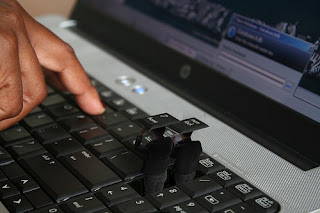Six situations when even the toughest passwords succumb
Without a doubt, establishing a strong password for each of your online accounts is crucial for keeping them safe from prying eyes. On the other hand, having a long password that combines letters, symbols and numbers is not a guarantee that you will be protected from everything that the internet throws at you. Let’s summarize the situations when even the strongest password can’t do much for you.
Keyloggers
The keyloggers are malicious programs installed as viruses with the purpose of recording each keystroke, including passwords. Nowadays, keyloggers can also store screenshots, mouse clicks and network traffic, meaning the methods typically employed to bypass the defense software. The recordings are sent to the hackers who analyze the results and can extract account names and passwords. The good news is that you can download various tools and scan your computer regularly for keyloggers.
Public computers
In addition to keylogger, public computers can carry a bundle of malicious hardware devices that can record data for the hackers. Therefore, even if you perform a malware scan you have no way of knowing whether your strokes and clicks are being registered or not. A further issue resulting from public computers comes from the fact that people often forget to log off and simply walk away leaving their account exposed to the next user.
Using open Wi-Fi connections
Any Wi-Fi connection that does not feature a WPA encryption should be avoided if you want to keep your accounts safe. Anyone in the area of the free wireless is able to check out your current conversations and see the sites you logged on. Since the open Wi-Fi is usually available in public places, take note that some people could learn your account name when they simply pass by your machine. But more on that later!
Phishing
Phishing has become a common practice, particularly for people with online gaming accounts. In fact, there are very few chances that users with an MMORPG account didn’t receive an email asking for personal data to avoid being banned or to receive a bonus at least once. Be wary of any email containing these messages, regardless of whether it is sent by your bank, work admin or game company, and verify the email address of the sender before submitting any personal information.
Poor security questions
A secured account does not only imply a super-strong password, but also security questions that are hard to guess. If you select simple security questions then it could be easy for a hacker to read your social network profiles and figure out the answers after several tries. And, since they are used for validating the user, breaking them means gaining access to the account.
Shoulder surfing
Even though looking over one’s shoulder and memorizing the keys they type is not exactly easy, it is important to note that it is a frequently employed practice. What if, for instance, the person sitting behind you at the library sees and notes your password and changes it while you are away from your desk? The best defense in this case is to be careful on how you type!
















0 comments:
Post a Comment